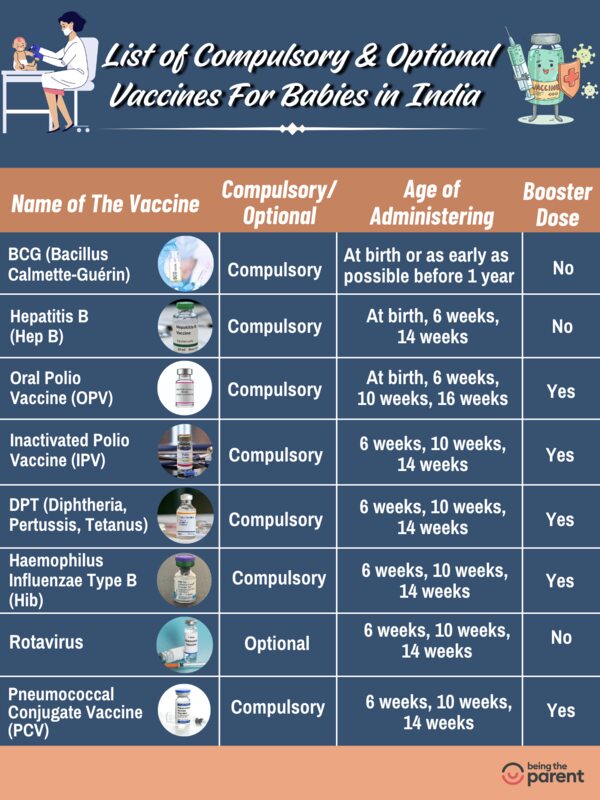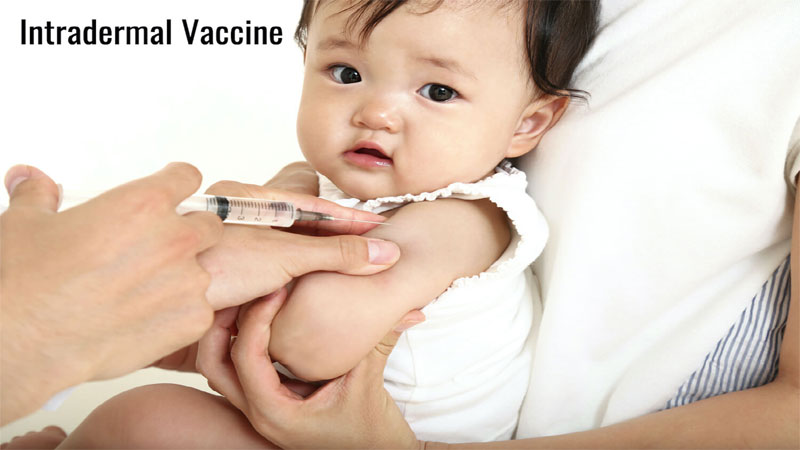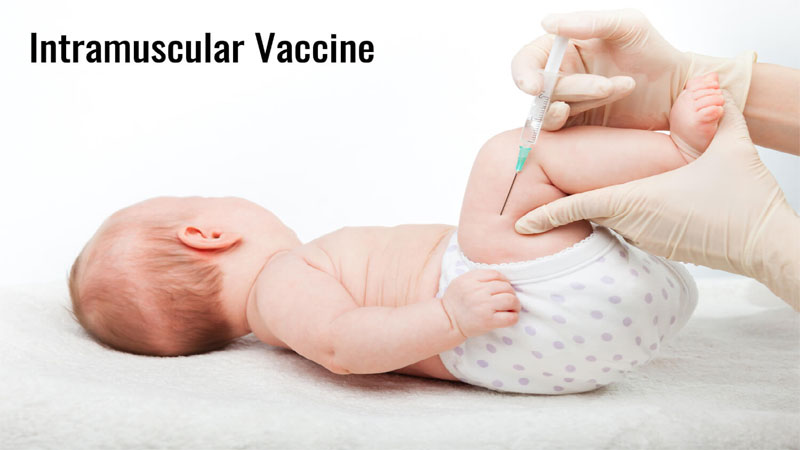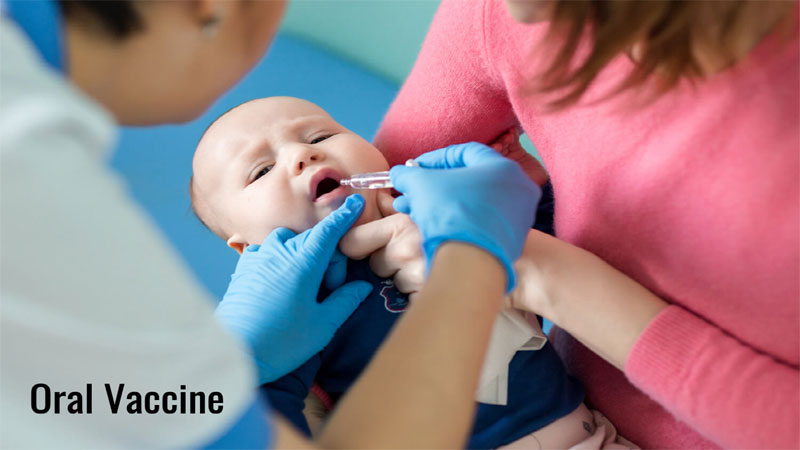
If there is a newborn baby in the house or you are expecting one soon, people around you make sure that they have made you anxious and worried about the different types of vaccines for the baby. All that discussion and free advice by them is sure to confuse you!
But vaccines are crucial for any newborn baby. There are many questions regarding vaccines that are considered important, which vaccines are optional for babies, and when to give them. Read along, and we’ll try to answer these questions.
Infographic For List of Compulsory And Optional Vaccines For Babies

How do Vaccines Work?
It is an interesting concept. Say we vaccinate the baby for a disease. The vaccine consists of weakened and preserved disease-causing pathogens (1). So when the vaccine enters the body via the correct route, it activates the antibodies in our body that protect us against that particular pathogen. These antibodies practice against the vaccine, so when the actual infection occurs, they have the immunity and strength to fight it off (2).
Look at it this way. You play cricket, you are weak against the bouncer. You practice that ball over and over in the nets, perfecting various ways to deal with it. So during an actual match, whenever you face a bouncer, you can easily dispatch it via a great hook shot!
Why Are Childhood Vaccines Important?

Now that we learned about how vaccines help the body fight pathogens, let us see why it is vital to vaccinate babies during childhood. You must have heard the saying, “Prevention is better than cure.” That is the whole concept behind immunization during childhood. The vaccine develops immunity. So, the baby is not affected by the disease. The body can fight back (3).
One more reason is the inability and the weakness of a baby to fight diseases on its own. Sure, the baby gets some immunity from the mom, but that fades away by the time the baby gets one year old. This is where vaccines come in. They help develop the strength and the antibodies to fight! (4).
[Read : Are Vaccines Really Safe for My Babies?]
What Should Parents Know Before Vaccinating Their Baby?
There are practically infinite things to know about the immunization process for babies, a whole lot of information. But most of the information out there can make you paranoid and anxious!
So, let us make it simple for you! The most important thing is knowing the importance of vaccines. And that we have already covered so it’s necessary that every parent understands the importance of vaccines and stick to the schedules as directed by the doctor.
1. Side Effects to Vaccinations Are Minimal
As little as they might be, there are some adverse effects in the form of immunization. Vaccinating babies can cause side effects such as discomfort, fever, aches, rashes, or pain at the site of injection. But it is normal. You expect side effects from a vaccine.
If your baby has a mild fever or is acting restless after getting a vaccine, you need not worry about it (5).
2. Extreme Reactions To Vaccinations Are Rare
Severe side effects of vaccinations are rare but possible. Some rare side effects of vaccinations include swelling of the face and throat, difficulty breathing, fast heartbeat, rashes, dizziness and extreme weakness (6).
If you observe these signs after vaccination, you must consult the pediatrician immediately. The chances of the reaction occurring are negligible. So, it is better to get the vaccine without fearing the possibility of a reaction.
3. Record All Vaccines Your Baby Has Got
It is important to have a record of all the vaccinations your baby has got along with the date and vaccination name. This record will be used by pediatricians to know if all the vaccinations are covered and when to schedule the next vaccination appointment for your little one. This will especially come in handy when you change your baby’s hospital or move to a new location.
List of Compulsory Vaccines For Babies

There are several vaccines listed out there. And you must have heard people talking about many of them. But not all of them are compulsory. The government has only mandated the essential ones, the crucial ones!
So here is a list of all the compulsory vaccines for babies:
1. BCG Vaccine
- BCG vaccine, also known as the Bacille Calmette-Guérin vaccine, is the vaccine for tuberculosis.
- This vaccine is given to the baby soon after birth.
- This vaccine protects kids up to 5 years of age from all forms of tuberculosis (7).
- If that is difficult, we can vaccinate the baby before it turns twelve months old.
- The vaccine is intradermal. In simple terms, it is injected between the layers of the skin, usually the upper left arm region.
- BCG vaccine for babies is compulsory in India.
BCG vaccine is not compulsory in countries where the risk is not significant, like the US, Switzerland, Norway, etc.
According to the WHO 2019 report, India recorded 2.64 million TB cases. As the risk is quite high, BCG is mandatory.
2. Hepatitis B Vaccine

Hepatitis is a viral disease that affects the liver. It causes the liver to swell, leading to consequences (8). It is common in Asian countries, especially China and India. So, it is made compulsory upon birth.
- The Hepatitis B vaccine is intramuscular. In other words, it is injected into the muscles, usually around the mid-thigh region.
- Hepatitis B birth dose vaccine is given right after the baby is born, within 24 hours (9).
- Another way of vaccinating the baby is three separate doses.
- The first dose is given when the baby is six weeks old.
- The second one is given when the baby is ten weeks old.
- The baby gets the final dose when it turns fourteen weeks old.
3. Pentavalent
The Pentavalent is one of the most important vaccines for the baby. As the name suggests, it combines five vaccines (10). It consists of:
- Diphtheria vaccine
- Tetanus vaccine
- Pertussis vaccine
- Haemophilus Influenza Type B infection
- Hepatitis B vaccine
The pentavalent vaccine needs three intramuscular doses. The baby gets the first dose when it turns six weeks old. When the baby turns ten weeks old, it gets the second dose. The final jab happens when the baby turns 14 weeks old.
[Read : DTaP Vaccine for Babies]
4. OPV Vaccine

Polio is a life-threatening condition and babies are highly susceptible to this highly infectious disease. Polio vaccine is the best way to prevent polio in babies.
Here is the detailed polio vaccine schedule for babies.
- Two drops are the dose for the polio vaccine given to the baby right after birth.
- The baby gets three more doses of polio – when it turns six weeks, ten weeks, and fourteen weeks respectively.
- The baby gets one more booster dose when it is between 16 to 24 months old.
Birth dose of OPV has proven to be safe and effective means of preventing polio in babies (11).
5. RVV Vaccine
If a baby has loose motions all the time, there might be a chance of Rotavirus infection. It is contagious and challenging to control! Therefore, RVV or RotaVirus Vaccine is prescribed by doctors for babies.
- Rotavirus Vaccine immunises babies from rotavirus (12).
- Three oral doses, five drops each, when the baby turns six weeks, ten weeks, and fourteen weeks old.
6. Measles Vaccine
Measles, another lethal viral infection, can cause severe respiratory problems. It leads to pneumonia in babies, which can have serious consequences, even death.
Vaccinations have been successful in bringing down the disease rate worldwide (13).
- The baby can take the first dose of measles anytime between 9 to 12 months of age.
- It is injected between the skin and muscles.
- It is called the subcutaneous injection method and is taken on the right upper arm.
List of Optional Vaccines for Babies

As mentioned earlier, not all vaccines are compulsory! Apart from the ones above, all the other ones are optional because the risk factor isn’t high. So, the government hasn’t mandated them. Here is a list of all the optional vaccines:
1. HiB (Haemophilus Influenza Type B Vaccine)
HiB vaccine protects from Haemophilus bacteria. This vaccine helps fight the deadly and invasive H influenza infections which can be fatal in babies.
Children under 5 years of age are highly susceptible to this infection. However, this infection is rare. For this reason, the vaccine is not compulsory (14), but it is recommended.
Mode of vaccination: intramuscular injection on the thigh.
2. PCV (Pneumococcal Vaccine)
The major threat from this bacteria is pneumonia. It can be difficult to treat babies and hence PCV is recommended. The baby gets an intramuscular injection on the thigh.
Pneumococcal vaccine or PCV provides immunity against pneumococcal diseases such as pneumonia, meningitis, and certain other blood infections (15).
3. Varicella
Varicella immunizes the baby against chickenpox (16). Chickenpox is quite rare, so the varicella vaccine is not mandatory. It is injected via subcutaneous injection.
[Read : Chickenpox and its Vaccine for Babies]
What Happens if I Do Not Vaccinate my Baby?

In India, parents who have not vaccinated their babies at the right time are not fully aware of the importance and may skip vaccination entirely. It comes down to lack of information or the accessibility to information. Or straight up, it can be out of ignorance, which is sad.
However, many parents choose not to vaccinate their baby, even though they have all the information about it. But with that decision come some risks and responsibilities, which they need to know about.
Here is what happens if you do not vaccinate your baby (17).
- The baby’s immunity is weak, so the risk of infection is high.
- By missing vaccines, you are putting others around you at risk. It may infect the elderly and weak people in the family and community, like newborns.
- When there is an outbreak of a vaccine-preventable disease, the risk for your baby is extremely high.
Here are your responsibilities if you have not vaccinated your baby and your baby has contracted a diseases or a preventable condition.
- Speak honestly about the vaccination history of your baby to the healthcare professionals.
- Learning and diagnosing symptoms for vaccine-preventable diseases is important.
- Being aware of the guidelines in case of infection is an important responsibility.
- Take extra care while traveling. Prevent contact with unknown people.
Vaccinations are vital for babies and help improve their immune systems. Vaccinating babies will protect them for many preventable diseases, especially when there are major outbreaks. There may be many myths surrounding vaccines but research studies have been able to bust most of these myths.
FAQ’s
1. What Are The Mandatory Vaccinations For Babies in India?
Some compulsory vaccinations to be given to babies in India are BCG, Hepatitis B, Pentavalent, OPV, MMR, and Rotavirus vaccine.
2. How Many Days Can We Delay Vaccine For A Baby?
It is OK to delay a vaccination for a week or two. If there is a delay beyond that, it is good to check with your pediatrician on further course of action.
References
- Vaccine Types, National Institute of Allergy and Infectious Diseases, National Institute of Health – https://www.niaid.nih.gov/research/vaccine-types
- How do vaccines work?, World Health Organisation – https://www.who.int/news-room/feature-stories/detail/how-do-vaccines-work
- Vaccines for children: Your questions answered, UNICEF Parenting – https://www.unicef.org/parenting/health/parents-frequently-asked-questions-vaccines
- WHO, How do vaccines work? – https://www.who.int/news-room/feature-stories/detail/how-do-vaccines-work
- After vaccination, National Centre for Immunisation Research and Surveillance – https://ncirs.org.au/vaccine-safety/after-vaccination
- Vaccine Side Effects, Immunization, U.S Dept of Health & Human Services – https://www.hhs.gov/immunization/basics/safety/side-effects/index.html
- Martinez L, Cords O, Liu Q, Acuna-Villaorduna C, Bonnet M, Fox GJ, Carvalho ACC, Chan PC, Croda J, Hill PC, Lopez-Varela E, et al , Infant BCG vaccination and risk of pulmonary and extrapulmonary tuberculosis throughout the life course: a systematic review and individual participant data meta-analysis. Lancet Glob Health. 2022 Sep;10(9):e1307-e1316. – https://www.ncbi.nlm.nih.gov/pmc/articles/PMC10406427/
- Hepatitis, World Health Organization – https://www.who.int/health-topics/hepatitis
- Tee, Q.W.; Odisho, R.; Purcell, E.; Purcell, R.; Buttery, J.; Nold-Petry, C.A.; Nold, M.F.; Malhotra, A. Safety of Hepatitis B Vaccines (Monovalent or as Part of Combination) in Preterm Infants: A Systematic Review. Vaccines 2024, 12, 261. – https://www.mdpi.com/2076-393X/12/3/261
- Bairwa M, Pilania M, Rajput M, Khanna P, Kumar N, Nagar M, Chawla S. Pentavalent vaccine: a major breakthrough in India’s Universal Immunization Program. Hum Vaccin Immunother. 2012 Sep;8(9):1314-6. – https://www.ncbi.nlm.nih.gov/pmc/articles/PMC3579914/
- Khare S, Kumari S, Nagpal IS, Sharma D, Verghese T. Oral polio vaccination in infants: beneficial effect of additional dose at birth. Indian J Pediatr. 1993 Mar-Apr;60(2):275-81 – https://pubmed.ncbi.nlm.nih.gov/8244504/
- Rotavirus Vaccination – Immunize India – https://immunizeindia.org/content/rotavirus-vaccination/
- Nic Lochlainn LM, de Gier B, van der Maas N, van Binnendijk R, Strebel PM, Goodman T, de Melker HE, Moss WJ, Hahné SJM. Effect of measles vaccination in infants younger than 9 months on the immune response to subsequent measles vaccine doses: a systematic review and meta-analysis. Lancet Infect Dis. 2019 Nov;19(11):1246-1254 – https://www.ncbi.nlm.nih.gov/pmc/articles/PMC6838663/
- Brundage HL, Mukka SK. Haemophilus influenzae Type b Vaccine. [Updated 2023 Feb 20]. In: StatPearls [Internet]. Treasure Island (FL): StatPearls Publishing; 2024 Jan – https://www.ncbi.nlm.nih.gov/books/NBK553112/
- Pavia M, Bianco A, Nobile CG, et al. Efficacy of pneumococcal vaccination in children younger than 24 months: a meta-analysis. 2009. In: Database of Abstracts of Reviews of Effects (DARE): Quality-assessed Reviews [Internet]. York (UK): Centre for Reviews and Dissemination (UK); 1995 – https://www.ncbi.nlm.nih.gov/books/NBK78004/
- Bibi Z, Nawaz AD, Al Kurbi M, Fakhroo S, Ferih K, Al-Jaber N, Alex M, Elawad KH, Chivese T, Zughaier SM. Real-World Effectiveness of the Varicella Vaccine among Children and Adolescents in Qatar: A Case-Control Study. Vaccines (Basel). 2023 Oct 5;11(10):1567 – .https://www.ncbi.nlm.nih.gov/pmc/articles/PMC10611158/
- 7 consequences and risks of not getting your child routinely vaccinated, UNICEF Indonesia – https://www.unicef.org/indonesia/health/stories/7-consequences-and-risks-not-getting-your-child-routinely-vaccinated
[Read Also : 10 Ways to Ease Your Baby’s Vaccination Pain]
